Evolutionary Biology

Woolly Mammoth Genomes Reveal Genetic Adaptations to Cold
Hannah Thomasy, PhD | Dec 12, 2022 | 2 min read
Researchers identified mutations in genes that may be involved in fat regulation, fur growth, and morphology.

Many Moths Speak Up to Ward Off Bats
Connor Lynch | Dec 1, 2022 | 5 min read
A decade-long, multicontinent study suggests that acoustic defense strategies are more common among moths than previously imagined.
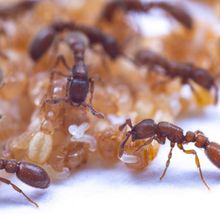
Ant Pupae Feed Adults, Larvae with Secreted Liquid
Viviane Callier | Nov 30, 2022 | 4 min read
The molting fluid of ant pupae functions as “metabolic currency” in the ant colony and may have enabled the evolution of eusociality.
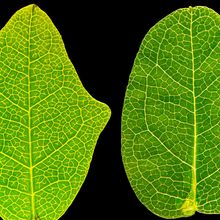
Can Plants See? In the Wake of a Controversial Study, the Answer’s Still Unclear
Christie Wilcox, PhD | Nov 30, 2022 | 10+ min read
A tiny pilot study found that so-called chameleon vines mimicked plastic leaves, but experts say poor study design and conflicts of interest undermine the report.
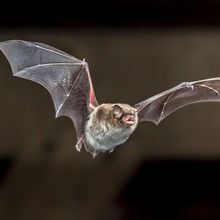
Duplicated Gene Helps Bats Survive “Arms Race” With Viruses
Dan Robitzski | Nov 23, 2022 | 5 min read
Bats are known for staying healthy even while harboring viral infections. Now, research sheds light on how their unusual immune system evolved.

Archaea Sport Structures that Shuttle Genes Among Microbes
Natalia Mesa, PhD | Nov 16, 2022 | 3 min read
Researchers find so-called integrons, previously known only in bacteria, in their distantly related microbial relatives.
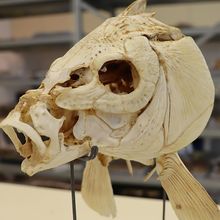
Fossilized Fish Teeth Could Be Earliest Evidence of Cooking
Katherine Irving | Nov 14, 2022 | 2 min read
Study authors say the teeth, dated around 780,000 years old, push back the date humans are known to have engaged in cooking by more than 600,000 years.
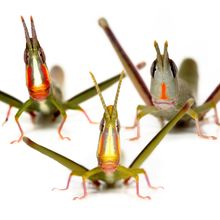
How a Grasshopper Gave Up Sex, Took Up Cloning
Dan Robitzski | Nov 1, 2022 | 5 min read
Meet the grasshopper that has reproduced asexually for a quarter of a million years—without acquiring undue numbers of harmful mutations.
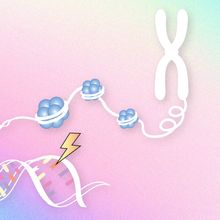
Infographic: How Epigenetic Marks Can Change the Genome
Katarina Zimmer | Nov 1, 2022 | 2 min read
Although epigenetic changes were long thought to largely act on the genome, rather than as part of it, research is now showing that these patterns can, directly or indirectly, change the genetic code.

Do Epigenetic Changes Influence Evolution?
Katarina Zimmer | Nov 1, 2022 | 10+ min read
Evidence is mounting that epigenetic marks on DNA can influence future generations in a variety of ways. But how such phenomena might affect large-scale evolutionary processes is hotly debated.

Turtle Vocalizations Reframe Origins of Auditory Communication
Amanda Heidt | Oct 26, 2022 | 4 min read
Sounds made by more than 50 vertebrates previously thought to be mute push back the origin of this type of communication by at least 100 million years, a study finds.
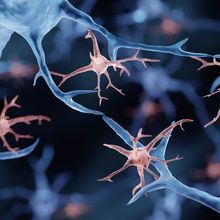
Ancient Viral DNA Helps Mouse Brains Fight Infection
Natalia Mesa, PhD | Oct 24, 2022 | 3 min read
Mammals that give birth to live young may have evolved to make use of the remnants of viruses in their genomes to ward off pathogens, a study suggests.

Black and Gray Wolf Pairings Stem Disease, Stabilize Population: Study
Katherine Irving | Oct 20, 2022 | 4 min read
The black fur allele has fitness costs but also confers higher immunity against canine distemper virus, making mix-and-match mating key to population survival.
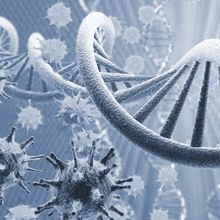
Ancient Viral DNA Plays a Role in Human Disease and Development
Aidan Burn, The Conversation | Oct 19, 2022 | 4 min read
Viral remnants make up 8 percent of the human genome, and a new study finds that these sequences are still active in healthy people.
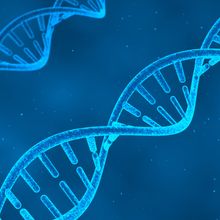
Mitochondrial DNA Sneaks into Nuclear Genome
Holly Barker, PhD | Oct 17, 2022 | 3 min read
Genetic material pilfered from mitochondria may seal cracks in our genetic code, a study suggests.
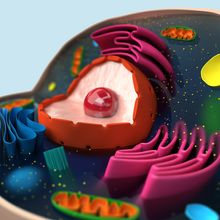
The Long and Winding Road to Eukaryotic Cells
Amanda Heidt | Oct 17, 2022 | 10+ min read
Despite recent advances in the study of eukaryogenesis, much remains unresolved about the origin and evolution of the most complex domain of life.
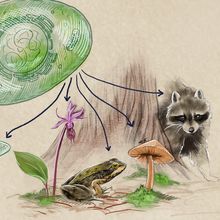
Infographic: Evolutionary Leaps Leading to Modern Eukaryotes
Amanda Heidt | Oct 17, 2022 | 2 min read
A lot happened in the hundreds of millions years separating the first and last eukaryotic common ancestors, but when and how most features arose remains a mystery.

Scientists Resurrect Ancient Rubiscos to Understand Their Evolution
Alejandra Manjarrez, PhD | Oct 14, 2022 | 5 min read
A team proposes that the addition of a small accessory subunit to the carbon-fixing enzyme was key to improving its catalytic properties and specificity to CO2.

What’s Next for Ancient DNA Studies After the Nobel?
Mary Prendergast, The Conversation | Oct 5, 2022 | 4 min read
The award highlights tremendous opportunities for aDNA as well as challenges related to rapid growth, equity, and misinformation.
